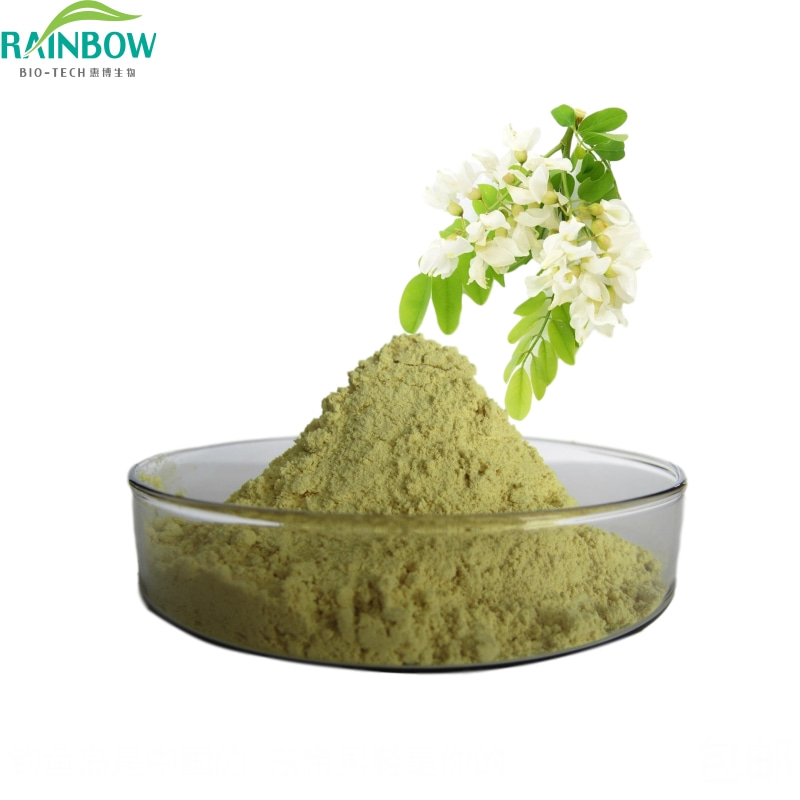1.What is the main use of quercetin?
Quercetin is a flavonoid found in many fruits, vegetables, and grains that is primarily known for its antioxidant properties. The main uses of quercetin include:
1. Antioxidant Support: Quercetin helps neutralize free radicals in the body, which can reduce oxidative stress and reduce the risk of chronic disease.
2. Anti-inflammatory effects: Studies have shown that it has the potential to reduce inflammation, which can be beneficial for conditions like arthritis and other inflammatory diseases.
3. Relieve Allergy: Quercetin is often used as a natural antihistamine, helping to relieve allergy symptoms by stabilizing mast cells and preventing the release of histamine.
4. Cardiovascular Health: Some studies suggest that quercetin may support heart health by improving blood vessel function and lowering blood pressure.
5. Immune System Support: It can enhance immune function and help the body deal with infection.
6. Athletic Performance: Some athletes use quercetin supplements to potentially improve endurance and reduce exercise-induced inflammation.
While quercetin is available as a dietary supplement, it can also be consumed through a diet rich in fruits and vegetables, such as apples, onions, berries, and citrus fruits. However, more research is needed to fully understand its effects and benefits. Always consult a healthcare professional before starting any new supplementation regimen.
2.Who should avoid quercetin?
Quercetin is generally considered safe for most people, whether consumed through food or as a supplement. However, certain groups of people should be cautious or avoid taking quercetin supplements:
1. Pregnant and lactating women: There is limited research on the safety of quercetin during pregnancy and lactation, so it is recommended to avoid use unless advised by a healthcare provider.
2. People who are allergic to quercetin sources: People who are allergic to foods containing quercetin (such as onions or apples) should avoid taking quercetin supplements.
3. Taking Certain Medications: Quercetin may interact with certain medications, including blood thinners (such as warfarin), antibiotics, and medications that affect liver enzymes. Patients taking these medications should consult their healthcare provider before using quercetin.
4. People with kidney problems: High doses of quercetin may be risky for people with kidney problems as it can affect kidney function.
5. People with low blood pressure: Quercetin may lower blood pressure, so people with low blood pressure or who are taking antihypertensive drugs should use it with caution.
As always, it’s best to consult a healthcare professional before starting any new supplements, especially if you have underlying health conditions or are taking other medications.
3.Is it okay to take quercetin every day?
Quercetin is generally considered safe for most people when taken daily in moderate amounts, either through food sources or as a dietary supplement. However, there are a few things to be aware of:
1. Dosage: While quercetin is available in supplement form, it is important to follow the recommended dosage on the product label or as advised by a healthcare professional. Typical dosages range from 500 mg to 1000 mg daily, but individual needs may vary.
2. Long-term use: The long-term safety of quercetin supplements has not been extensively studied. While short-term use is generally considered safe, it is recommended to consult a healthcare provider for guidance on long-term use.
3. Personal Health Conditions: If you have any underlying health conditions or are taking medications, it is important to discuss with a healthcare professional whether daily quercetin supplementation is appropriate for you.
4. Dietary Sources: Including quercetin-rich foods in your diet (such as onions, apples, berries, and citrus fruits) is a natural way to get this flavonoid without the need for supplements.
In summary, while many people can safely take quercetin on a daily basis, it’s best to consult with a healthcare provider to ensure it fits your personal health needs and situation.
4.Does quercetin get rid of inflammation?
Quercetin has been studied for its anti-inflammatory properties, and there is evidence that it may help reduce inflammation in the body. Here are some key points about quercetin and inflammation:
1. Mechanism of Action: Quercetin may inhibit the production of pro-inflammatory cytokines and enzymes that play a role in the inflammatory response. By modulating these pathways, quercetin may help reduce inflammation.
2. Research evidence: Some studies have shown that quercetin can effectively reduce inflammatory markers in various diseases, such as arthritis, allergies, and respiratory diseases. However, more research is still needed to fully understand its efficacy and its related mechanisms.
3. Supplemental Approach: While quercetin may help manage inflammation, it tends to be most effective when used as part of a broader approach that includes a healthy diet, regular exercise, and other lifestyle factors.
4. Consult a Healthcare Provider: If you are considering using quercetin specifically to treat inflammation, it is recommended that you consult a healthcare professional to determine the appropriate dosage and ensure it is appropriate for your personal health needs.
In summary, quercetin may help reduce inflammation, but it should be considered a supplemental option rather than a stand-alone treatment.
If you are interested in our product or need samples to try, please do not hesitate to contact me at any time.
Email:sales2@xarainbow.com
Mobile:0086 157 6920 4175(WhatsApp)
Fax:0086-29-8111 6693
Post time: May-06-2025



